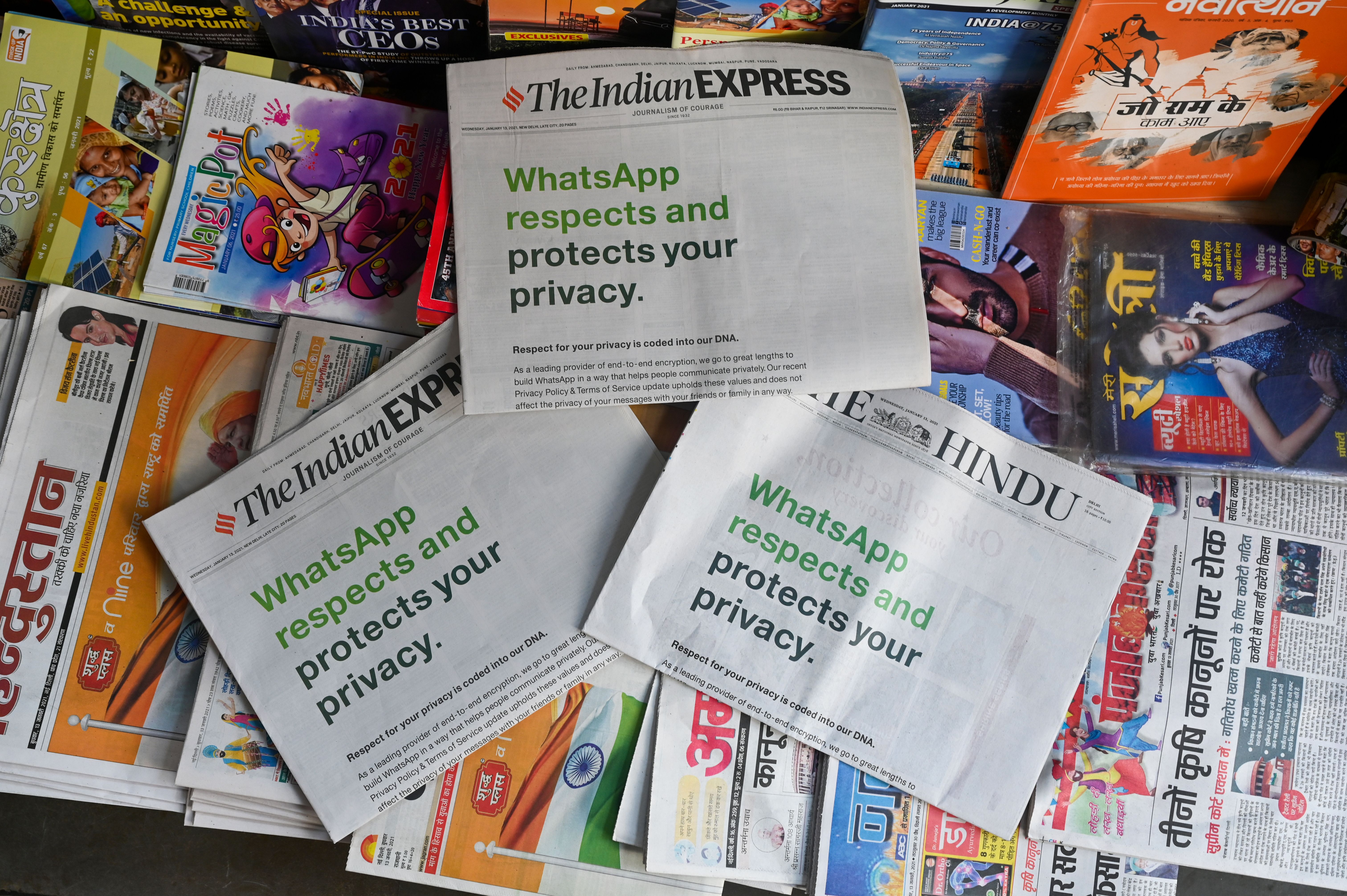Social Media
India asks WhatsApp to withdraw new privacy policy over ‘grave concerns’


India has asked WhatsApp to withdraw the planned change to its privacy policy, posing a new headache to Facebook-owned service that identifies the South Asian nation as its biggest market by users.
In an email to WhatsApp head Will Cathcart, the nation’s IT ministry said the upcoming update to the app’s data-sharing policy has raised “grave concerns regarding the implications for the choice and autonomy of Indian citizens… Therefore, you are called upon to withdraw the proposed changes.”
The ministry is additionally seeking clarification from WhatsApp on its data-sharing agreement with Facebook and other commercial firms and has asked why users in the EU are exempt from the new privacy policy but their counterpoint in India have no choice but to comply.
“Such a differential treatment is prejudicial to the interests of Indian users and is viewed with serious concern by the government,” the ministry wrote in the email, a copy of which was obtained by TechCrunch. “The government of India owes a sovereign responsibility to its citizens to ensure that their interests are not compromised and therefore it calls upon WhatsApp to respond to concerns raised in this letter.”
Through an in-app alert earlier this month, WhatsApp had asked users to agree to new terms of conditions that grants the app the consent to share with Facebook some personal data about them, such as their phone number and location. Users were initially provided until February 8 to comply with the new policy if they wished to continue using the service.
“This ‘all-or-nothing’ approach takes away any meaningful choice from Indian users. This approach leverages the social significance of WhatsApp to force users into a bargain, which may infringe on their interests in relation to informational privacy and information security,” the ministry said in the email.

An advertisement from WhatsApp is seen in a newspaper at a stall in New Delhi on January 13, 2021. (Photo by Sajjad HUSSAIN / AFP) (Photo by SAJJAD HUSSAIN/AFP via Getty Images)
The notification from WhatsApp prompted a lot of confusion — and in some cases, anger and frustration — among its users, many of which have explored alternative messaging apps such as Telegram and Signal in recent weeks.
WhatsApp, which Facebook bought for $19 billion in 2014, has been sharing some limited information about its users with the social giant since 2016 — and for a period allowed users to opt-out of this. Responding to the backlash last week, the Facebook-owned app, which serves more than 2 billion users worldwide, said it was deferring the enforcement of the planned policy to May 15.
WhatsApp also ran front-page ads on several newspapers in India, where it has amassed over 450 million users, last week to explain the changes and debunk some rumors.
New Delhi also shared disappointment with the timing of this update, which to be fair WhatsApp unveiled last year. The ministry >said that it was reviewing the Personal Data Protection Bill, a monumental privacy bill that is meant to oversee how data of users are shared with the world.
“Since the Parliament is seized of the issue, making such a momentous change for Indian users at this time puts the cart before the horse. Since the Personal Data Protection Bill strongly follows the principle of ‘purpose limitation,’ these changes may lead to significant implementational challenges for WhatsApp should the Bill become an Act,” the letter said.
On Tuesday, India’s IT and Law Minister Ravi Shankar Prasad also offered a loud advice to Facebook. “Be it WhatsApp, be it Facebook, be it any digital platform. You are free to do business in India but do it in a manner without impinging upon the rights of Indians who operate there.”
-

 Entertainment6 days ago
Entertainment6 days agoWordPress.org’s login page demands you pledge loyalty to pineapple pizza
-

 Entertainment7 days ago
Entertainment7 days agoRules for blocking or going no contact after a breakup
-

 Entertainment6 days ago
Entertainment6 days ago‘Mufasa: The Lion King’ review: Can Barry Jenkins break the Disney machine?
-

 Entertainment5 days ago
Entertainment5 days agoOpenAI’s plan to make ChatGPT the ‘everything app’ has never been more clear
-

 Entertainment4 days ago
Entertainment4 days ago‘The Last Showgirl’ review: Pamela Anderson leads a shattering ensemble as an aging burlesque entertainer
-

 Entertainment5 days ago
Entertainment5 days agoHow to watch NFL Christmas Gameday and Beyoncé halftime
-

 Entertainment4 days ago
Entertainment4 days agoPolyamorous influencer breakups: What happens when hypervisible relationships end
-

 Entertainment3 days ago
Entertainment3 days ago‘The Room Next Door’ review: Tilda Swinton and Julianne Moore are magnificent

















